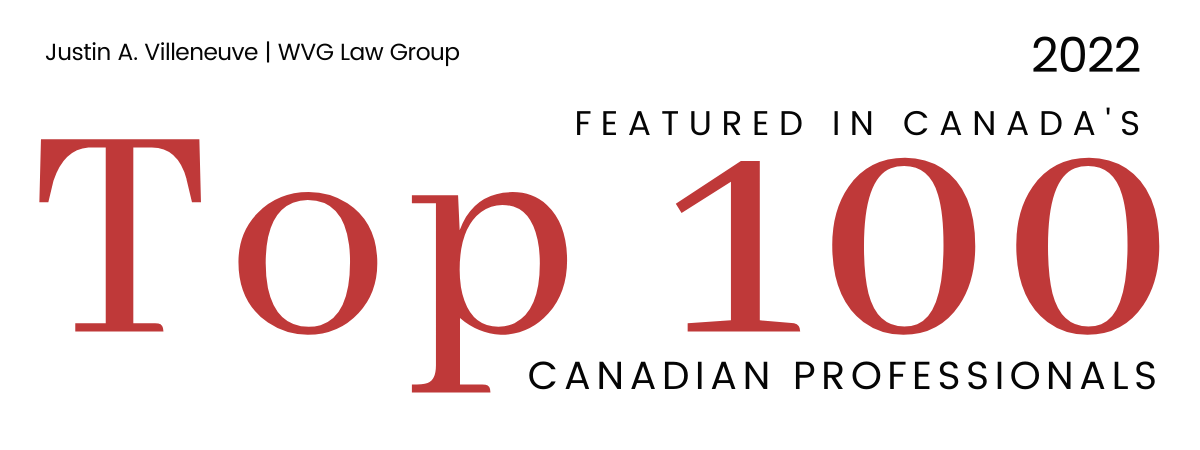Let's talk about your case
You can schedule a call with one of our lawyers anytime. Call today and get the help you need.
Or fill out our online form, and we will respond within 24 hrs.
Understanding OCF-18: Statutory Accident Benefits & Treatment Plans
Navigating the complex world of auto insurance claims can be daunting, especially when you’re dealing with a motor vehicle accident’s aftermath. One crucial component in this process is the OCF-18 form, which plays a significant role in outlining assessments and treatments for injuries caused by motor vehicle accidents in Ontario. Are you prepared to understand and tackle this essential form? This comprehensive guide will provide you with valuable insights, expert tips, and practical strategies to help you confidently navigate the OCF-18 form and ensure the best possible outcome for your recovery journey.
Key Takeaways
- Navigating the OCF-18 form is important for healthcare providers, insurers, and accident victims to understand its purpose.
- Statutory Accident Benefits are essential components of treatment plans which cover medical expenses and provide income assistance & employment support.
- Healthcare providers can facilitate successful claims processing by utilizing templates & drafts, monitoring progress & adjusting treatment plans accordingly with open communication between all parties involved.
Navigating the OCF-18 Form: Key Components and Purpose

The OCF-18 form is regulated by the Financial Services Regulatory Authority and the Financial Services Commission, serving as a vital tool for healthcare providers, insurers, and accident victims. Its primary purpose is to:
- Provide a detailed description of the cause and nature of injuries resulting from a motor vehicle accident
- Outline necessary assessments or examinations for the continuous management of the claimant’s recovery
- Define treatment plan objectives
- Identify potential obstacles to recovery
Familiarizing yourself with the key components of the OCF-18 form will streamline the claims process, enabling you to receive the necessary financial support for your treatment and recovery.
Applicant Information
Accurate claim and patient information play a significant part in matching purposes and guarantee that the claimant receives the right financial support for their treatment and recovery. The responsibility of providing this information on the OCF-18 form lies with the applicant (patient) or their substitute decision-maker.
The OCF-18 form requires essential information such as the claimant’s name, the date of the claim, and the name of the healthcare provider. Healthcare providers play a critical role in writing effective treatment plans and ensuring that the information provided is accurate and up-to-date, ultimately contributing to the overall treatment process and the patient’s recovery journey.
Auto Insurer Information
Accurate auto insurer information, which is essential for processing claims, should be provided in the Health Claims for Auto Insurance (HCAI) system. The OCF-18 form plays a significant role in outlining necessary assessments, examinations, and treatments required for the patient’s recovery, ensuring that all parties involved in the claims process are well-informed and equipped to handle their responsibilities.
Health Practitioner and Regulated Health Professional Signatures
Health practitioners and regulated health professionals must sign the OCF-18 form, ensuring compliance with the Statutory Accident Benefits Schedule. This signature serves as a treatment contract between the patient, healthcare provider, and insurer, outlining the necessary assessments, examinations, and treatments required for the patient’s recovery and ensuring that all parties are aware of their responsibilities in the process.
Keep in mind that signatures are not sent to the insurer electronically. Hard copies of the form must be printed, signed and filed. They should be kept with the patient record at the healthcare facility. The signed hard copy must be provided upon request of the insurer or applicant (patient). It is a requirement of the insurer, or patient, to have a signed physical copy for any necessary compliance.
The Role of Statutory Accident Benefits in Treatment Plans

Statutory Accident Benefits play a crucial role in treatment plans by covering medical expenses and providing income assistance and employment support for accident victims. The Statutory Accident Benefits Schedule (SABS) is a form of no-fault insurance that provides benefits to individuals who have been injured in a car accident, regardless of who is deemed to be at fault.
Understanding the role of Statutory Accident Benefits in treatment plans will aid in cultivating a holistic approach to your recovery process.
Medical Expenses Coverage
Medical expenses coverage encompasses treatments, assessments, and rehabilitation services for injuries sustained in an accident. These benefits may include a wide range of expenses related services, such as:
- medical, surgical, dental, optometric, hospital, nursing, ambulance, audiometric and speech-language pathology services
- chiropractic, psychological, occupational therapy and physiotherapy services
- medication
- various assistive devices
The maximum amount of medical, rehabilitation, and attendant care benefit for accidents occurring on or after June 3, 2019 is $130,000. Furthermore, any applicable harmonized sales tax payable under Part IX of the Excise Tax Act (Canada) must also be added. In addition, reasonable and necessary expenses for visitors of an insured individual are reimbursed for a duration of 104 weeks.
Income Assistance and Employment Support
Income assistance and employment support help accident victims maintain financial stability during their recovery process. This support comes in various forms, such as income replacement benefits, lost educational expenses, and other income replacement assistance.
By providing financial support for medical costs, lost wages, and other expenses connected to the accident, Statutory Accident Benefits ensure that accident victims can focus on their recovery and overcome the challenges they face during this difficult time.
Mental Health Treatment Planning and OCF-18

Mental health treatment planning can be integrated with the OCF-18 process, focusing on setting goals, objectives, and interventions for the patient’s recovery, following a mental health treatment plan.
Simultaneously addressing mental health issues and physical injuries aids in forming a comprehensive and effective recovery plan.
Goals and Objectives
Goals and objectives in mental health treatment plans are tailored to the patient’s specific needs and challenges, guiding their progress throughout the recovery process. Customizing goals and objectives to the patient’s distinct needs and challenges ensures that the sample treatment plan is tailored to the individual’s circumstances, guaranteeing the plan’s success in helping the patient achieve their goals.
Examples of goals and objectives present in mental health treatment plans may include:
- Enhancing emotional regulation and coping skills
- Improving interpersonal relationships and communication
- Reducing symptoms of mental health disorders
- Increasing self-esteem and self-confidence
- Developing healthy coping mechanisms and stress management techniques.
Interventions and Therapeutic Techniques
Interventions and therapeutic techniques are chosen based on the patient’s unique situation and can be adjusted as needed throughout the treatment plan. Various interventions and techniques include:
- Cognitive-behavioral therapy (CBT)
- Dialectical behavior therapy (DBT)
- Mindfulness-based interventions
- Psychodynamic therapy
- Solution-focused therapy
- Motivational interviewing
These approaches may involve techniques such as cognitive restructuring, relaxation techniques, problem-solving skills, emotion regulation, and goal setting.
Tips for Completing the OCF-18 Form Accurately and Efficiently

For a smooth claims process, it’s necessary to fill out the OCF-18 form accurately and efficiently. Healthcare providers can sidestep common errors by adhering to guidelines and using templates and drafts.
Mastering the OCF-18 form completion process can guarantee that you receive the benefits you deserve, allowing you to concentrate on your recovery journey.
Avoiding Common Mistakes
Some common errors to avoid when completing the OCF-18 form include:
- Incomplete or imprecise data, such as erroneous dates
- Inaccurate information concerning the auto insurer
- Inaccurate information concerning the health practitioner or regulated health professional
To ensure accuracy when completing the OCF-18 form, thoroughly review all information before submitting the form, and make use of templates and drafts to guarantee accuracy.
Being thorough and meticulous in completing the OCF-18 form can prevent delays and complications in the claims process, ultimately helping you receive the benefits you need for your recovery.
Utilizing Templates and Drafts
Templates and drafts are pre-filled documents that can be utilized to expedite and ensure accuracy when completing the OCF-18 form. They can be employed to guarantee uniformity in the form completion process, saving time and effort while reducing the risk of errors stemming from outdated information or overlooking significant modifications in the form.
Using templates and drafts in the OCF-18 form completion process can result in a more efficient, accurate, and streamlined experience, contributing to improved outcomes for your recovery journey.
How Healthcare Providers Can Support Patients in the OCF-18 Process

Healthcare providers play a vital role in supporting patients throughout the OCF-18 process by maintaining open communication, collaborating with other professionals, and monitoring progress to adjust treatment plans as needed.
Healthcare providers at health care facilities can aid in ensuring a successful recovery process for their patients by nurturing a supportive and collaborative environment.
Communication and Collaboration
Open communication and collaboration between healthcare providers, patients, and insurers are essential in the claims process in order to guarantee that all parties are in agreement and that the process is conducted in an expedient and effective manner. The advantages of communication and collaboration include enhanced precision and productivity in the claims process, a better comprehension of the patient’s requirements, and improved coordination of care.
To ensure effective communication and collaboration, be candid, actively listen, and show respect for one another’s perspectives. This approach promotes a positive and productive environment, ultimately leading to better outcomes for the patient.
Monitoring Progress and Adjusting Treatment Plans
Healthcare providers are responsible for regularly monitoring the progress of their patients and adjusting treatment plans based on patient needs. This continuous evaluation and adjustment process can lead to better outcomes and a more successful recovery process.
The OCF-18 form plays a crucial role in facilitating this process, as it provides a comprehensive overview of the patient’s condition, treatment plan, and progress, enabling healthcare providers to track progress and make necessary adjustments to the treatment plan.
Summary
Navigating the complex world of auto insurance claims can be daunting, but understanding the OCF-18 form and its role in the recovery process can empower you to take control of your recovery journey. By mastering the OCF-18 form’s key components, understanding the role of Statutory Accident Benefits in treatment plans, integrating mental health treatment planning, and following best practices for form completion, you can ensure a smoother claims process and focus on your healing journey.
Remember, healthcare providers, patients, and insurers must work together, communicate effectively, and collaborate to support a successful recovery process. By embracing these strategies, you can overcome the challenges of the OCF-18 form and confidently navigate your path to recovery.
Frequently Asked Questions
What is an OCF 18 form?
The OCF-18 form is an essential document required to determine the level of treatment and medical care for patients who sustained injuries from a motor vehicle accident, that are not suitable for treatment under the Minor Injury Guideline (MIG). Parts 1 and 2 of the OCF-18 form must be completed by the patient and submitted to their auto insurance provider.
What is the difference between OCF 18 and OCF 23?
OCF 18 is a treatment plan, while OCF 23 confirms treatment under the Minor Injury Guideline which automatically pays the treatment facility up to $3,500.
Who can fill out an OCF 18?
The OCF-18 form can be filled out by health practitioners such as chiropractors, dentists, nurse practitioners, occupational therapists, optometrists, physicians, physiotherapists and speech language pathologists. Parts 1 and 2 of the OCF-18 form need to be completed by you and the remainder by a regulated health professional. The document will have to be signed by a health practitioner or health care professional from one of these professions.
How long does an insurance company have to respond to an OCF 18?
Insurers must respond to an OCF-18 within 10 business days of receiving it, as required by Section 38(8) of the SABS. Furthermore, the "Other Information" section of the OCF-21 must identify any claims for payment of goods or services that result from the insurer's failure to meet this time limit.
What is Hcai in Ontario?
Health Claims for Auto Insurance (HCAI) is an electronic system in Ontario that facilitates the transmission of auto insurance claim forms between insurers and health care facilities. It provides a mandatory platform to submit Treatment and Assessment plans (OCF 18s), Treatment Confirmation Forms (OCF 23s), and Assessment of Attendant Care Needs Forms (the Form 1). HCAI is designed to streamline the process of submitting and receiving auto insurance claims, making it easier for both insurers and health care facilities to manage their claims. It also helps to reduce paperwork and administrative costs associated with the claims process.
Let's talk about your case
You can schedule a call with one of our lawyers anytime. Call today and get the help you need.
Or fill out our online form, and we will respond within 24 hrs.
Thank you for contacting us.
We will get back to you as soon as possible. You can also book using this link: Personal Injury Booking Page
Please try again later
Related Blog Posts
Practice Areas
QUICK LINKS
CONTACT US
Tel: (613) 505- 5025
Fax: (613) 234-5852
info@wvgblaw.com
200-2571 Carling Avenue
Ottawa, Ontario
K2B 7H7
SERVICES
RECENT BLOG POSTS














